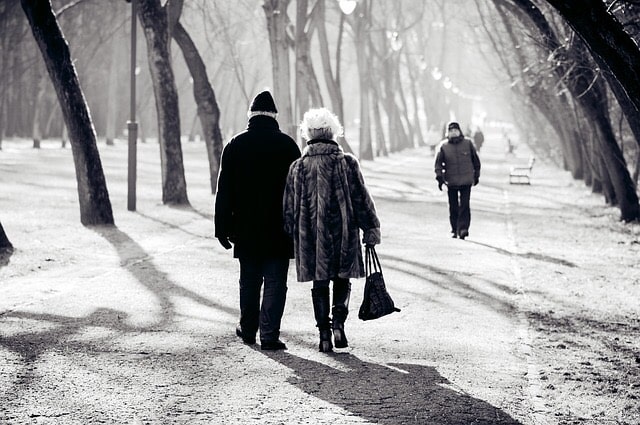The winter season can be challenging for everyone, but it can be an especially dangerous time for the elderly.
We have some safety tips for seniors this winter!
AUTO SAFETY
Have the following checked on your vehicle:
- Radiator : the anti-freeze levels should be checked
- Oil : talk with you mechanic about possibly switching to a thinner grade of engine oil that could perform better in colder temperatures
- Tires : be sure to check that your tires have air pressure and sufficient tread
- Belts : check the hoses and belts for leaks or cracks
- Battery : check to ensure the battery is fully charged
- Wipers : be sure you have plenty of wiper fluid and that they work
Here are a few other winter safety items for seniors to carry in their car, especially on trips out of town:
- Portable Phone Charger/Battery
- Ice Scraper
- Shovel
- Hazard Triangles or LED Flashers
- Flashlight
- Blankets & Extra Cold-Weather Clothes
- Snacks & Water
VITAMIN D
A vital nutrient you need for cancer prevention, diabetes prevention, and bone health is Vitamin D. Lacking in this vitamin is dangerous for the elderly. During the winter months, time spent indoors prevents the vitamin from penetrating the skin. Seniors should talk to their doctor before taking supplements to determine if they are necessary and to rule out any potential interactions with prescription medications.
SAFELY HEATING YOUR HOME
People over the age of 65 are three times more likely to be injured or die in a home fire. Many heating devices and appliances are fueled by oil, gas, wood, or kerosene. These fuel sources can create carbon monoxide gas. Some preventative steps to protect yourself are:
- Every level in your home should have a carbon monoxide detector on it. The batteries should be checked monthly and switched out once a year. This also goes for smoke alarms!
- In a wood burning fire, make sure you have a screen or glass covering that can catch flying sparks.
- Have the flue in the fireplace checked regularly.
- Space heaters need something important – their space! Items should be at least three feet away from the heater. The best option is to purchase a space heater with an automatic “off” option if it falls over.
- Purchase a fire extinguisher and know how to use it. It is wise to have one on each level of your home.
PREVENTING FALLS
The number one cause of injury in seniors is falling. Almost half of these falls that occur will require hospitalization. Many of these falls result in hip fractures, serious brain injuries, and other fatal injuries. Falling can be traumatizing for a senior, even resulting in them avoiding activities due to the fear of falling again.
These falls often occur in winter due to slippery and wet conditions. To help prevent these falls, seniors should avoid walking areas and sidewalks that have not been properly cleared of ice and snow. Invest in a pair of shoes with non-skid soles. When available and especially when getting out of the car, use handrails or ask someone to help you get around.

